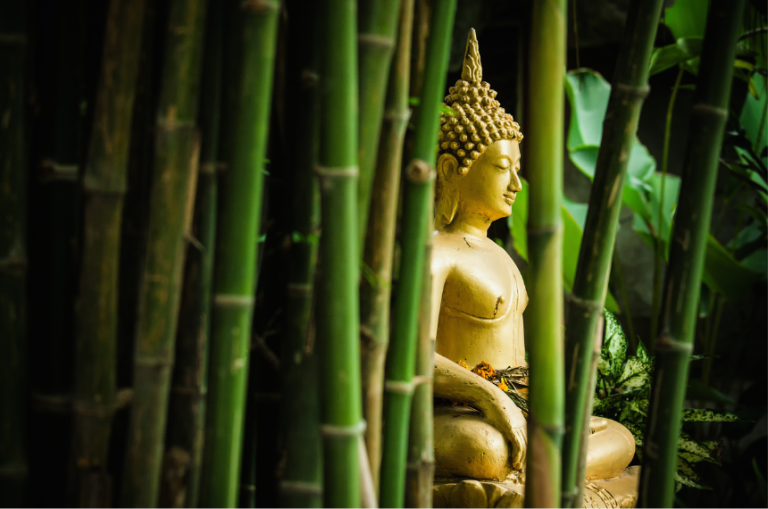The essence of this article is not to condemn people that have lied, neither is it about how to spot one. This is about seeing reason as it releases us from non-acceptance and sets us on the path to love.
Everybody lies
This is a fact. The extent and nature of it differs from person and situation. There are little white lies like saying “I’m doing alright” when you aren’t and there’s bigger lies, replacing reality with a completely different story.
There is also hiding the truth which, based on the severity of the event, can be considered a white lie or a major one. There is lies of ‘deception’ as well; like saying you’re a dog lover when you mildly tolerate them so you look better in the eyes of the person you want to impress.

At some point in their lives everyone has told at least one lie under all of these categories. Usually the bulk of it will be in a person’s teenage years. We first learn to lie when we are as young as 2 and 3 years old. A toddler shakes his head when asked if he ate that extra cookie; it seems almost instinctive.
“The reason I talk to myself is because I’m the only one whose answers I accept.” ~ George Carlin
A shallower view will tell you it’s in man’s nature to protect himself. No one wants to be punished. This is true, but let’s take a closer look. Approval, companionship and love – these are the three things human beings will go to any lengths to sustain. Sustenance of these ensures survival.
Approval
This has its roots in wanting to be liked. Seeking approval from others appeals to the ego-centric part of our being. It helps us feel safe and supported. It also keeps us from questioning our actions and their impact in the larger scheme of things.
Approval gives us the illusion that we are being understood. However, our actions to fulfill that arise from insecurity & doubt, not from the trueness of our nature.

Shame & Rejection
The feeling that we could be worthless arises when we don’t get the approval we are seeking from either ourselves or each other. We put ourselves through shame as a means to self-punish. However, shame is taught to us at an early age by our primary care-givers, and this leads to hiding our real and unaccepted needs.
Companionship
Loneliness is possibly the most dreaded feeling humankind has ever perceived of. Biologically and fundamentally, we are wired to mate with a partner and feel nurturing toward a family system and crave nourishment from them as well. It safeguards the continuation of our species.
Love
This is the great driving force for all actions. Seeking love is one the most natural tendencies we have. When we are confronted by the possibility of its lack, lies are told, wars break out, great rage is unleashed in a bid to somehow salvage it.
In recent studies on the nature of the reptilian brain, the most primal part of us, a fourth necessity was added among food, shelter and clothing; social connection. Humans thrive on community.
Humans are also unique and individualistic. So what happens when the needs & desires of the individual are not compatible with the expectations & norms of the community? Discord.
Three things can happen – either the individual sacrifices his/her urges and succumbs to the demands and standards of the community, or he/she decides to leave (or is ostracized from) the group. The individual can also choose to lie.
Hereby he/she lives out desires while not facing scrutiny from the group and maintaining the illusion of peaceful co-existence. Fear of being alone, shame, humiliation and rejection are feelings not only the person lying feels, but at our core, we all do. Even a lie to protect someone’s feelings invariably is a fear of losing them or their love or approval.
Community’s Role
Now let’s look at this from the point of view of the group. A group comes into being through recognition of a mutual identity and need. It’s the members’ job to preserve that identity and in case of anything threatening, it might face a lot of flak.
Shame is a tool used most often in this case. The ‘deviant’ is threatened with rejection of physical & emotional needs, made to feel like an outsider and a heretic. All because they cannot come to terms with another person’s truth.
Continual non-acceptance is the death of evolution. The group becomes part of the chain of untruths.
Reconnecting with our inner truths & taking responsibility
Shouldn’t the truth be something worth rejoicing? Apparently, we don’t see it like that. In fact, it may almost seem that deep down, we don’t even want to hear it because it forces us to face not just another’s truth, but our own.
 Our own deep-seated desires and fear, that if people knew was there, we’d be withheld of love and community. So we quiet down our inner voice, thereby severing ties with our true nature and our true selves.
Our own deep-seated desires and fear, that if people knew was there, we’d be withheld of love and community. So we quiet down our inner voice, thereby severing ties with our true nature and our true selves.
When this happens, we create a deep gorge of separation between us and our fellow beings too. We can no longer empathize because we have forgotten to be gentle with ourselves. We can no longer accept, because we have condemned ourselves. We allow ourselves to feel betrayed by others because it perpetuates the myth that we are helpless victims to events happening to us.
We cling to this as if it were a security blanket because taking the responsibility of reconnecting with ourselves is perceived as far too painful and because then we don’t have to accept that there’s anything we have to change.
In the words of Jim Morrison, “The most important kind of freedom is to be what you really are. You trade in your reality for a role. You trade in your sense for an act. You give up your ability to feel, and in exchange, put on a mask. There can’t be any large-scale revolution until there’s a personal revolution, on an individual level. It’s got to happen inside first.”
Its too easy to condemn people who lie. But it’s much harder to zoom into the source of our pain. When we do, we will realize that we all function out of the same fears. It takes both sides to make a change. If we live by the principles of co-operation and understanding and I mean really live as extensions of this perspective our evolution will sky-rocket!
Like Fyodor Dostoyevsky wrote, “Above all, don’t lie to yourself. The man who lies to himself and listens to his own lie comes to a point that he cannot distinguish the truth within him, or around him, and so loses all respect for himself and for others. And having no respect he ceases to love.”
For those reading this, I invite you to try and find a way to reconnect with yourself through letting go of betrayal, victimhood and guilt and stepping into the power of your own truth.
When we can do this even halfway, we’ll have cleared the way for truth by ridding the source of our fear and not just a symptom and take one giant leap into unity consciousness.
Image source



















